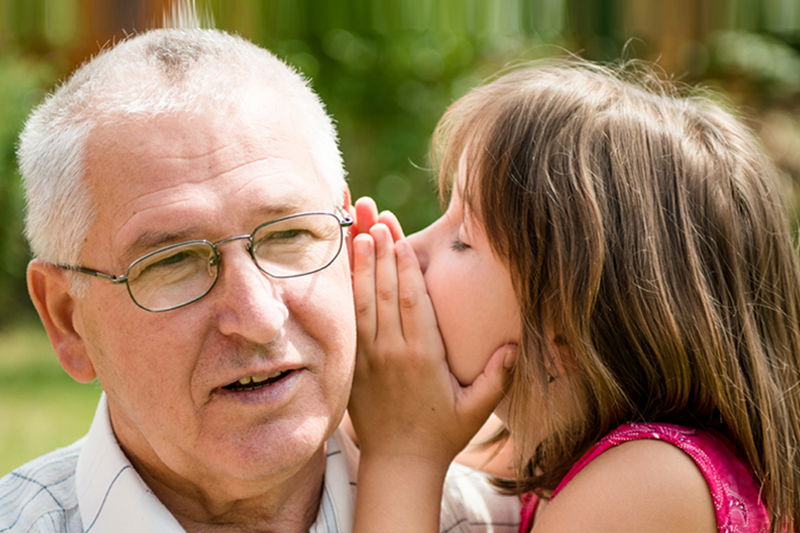Ron Lampert knew he had a hearing problem — for decades. The now retired 83-year old orthopedic surgeon surmises he first damaged his eardrums, and his hearing, when he was in the Air Force in his 20s. However, he didn’t get a hearing aid until he was 76.
Hearing Impairment Often Ignored
Lampert’s story is not unique. According to the National Institute on Deafness and Other Communication Disorders (NIDCD), only 16 percent of adults 20 to 69 who could benefit from wearing hearing aids use them, and less than 30 percent of adults over 70 who could benefit have them. The question is, why?
Dr. Heather Dean, Audiologist at Sierra Nevada Hearing Aid Center, believes that many people with compromised hearing are simply in denial. “They claim they hear what they want to hear,” she explains. “But if you talk to their spouse or kids, you get another story. They are missing out on a lot.”
Another reason people resist getting hearing aids — vanity. Many associate hearing loss with being old. By acknowledging their own hearing loss, they’re admitting they’re getting older.
Why Hearing Aids Are Important
It’s not just about carrying on a conversation — untreated impaired hearing is problematic for physical, emotional, social and psychological reasons.
Studies have linked untreated hearing loss effects to:
- balance issues and increased risk of falls
- irritability, negativism and anger
- fatigue, tension, stress and depression
- social isolation and loneliness
- reduced alertness and increased risk to personal safety
- impaired memory and ability to learn new tasks
- reduced job performance and earning power
- diminished psychological and overall health
- sexual issues
- low confidence, especially in social settings
In addition, few people realize that delayed treatment may make hearing loss worse. If all that isn’t motivating enough to get a hearing aid, consider that untreated hearing loss is also linked to cognitive decline and dementia. Some studies have suggested that mild hearing loss is linked to a doubling of dementia risk, and that moderate hearing loss can triple it. With severe hearing loss, the risk can be five times as high.
It Can Only Get Better
There are a lot of negative consequences to leaving hearing loss untreated, but nearly all those consequences disappear with treatment.
Despite all the evidence in support of them, it often takes a lot to get those with hearing loss to finally act to correct their impairment. For Lampert, it was not being able to hear his granddaughter. “You just don’t want to admit that you need the help,” he explains. “It took missing my granddaughter telling me she loved me to get me to finally do something about it.”
For Dave Archer, a technology executive in Reno, Nevada, his hearing loss became apparent when he began working in an office cube environment. “Without walls, everyone talks in hushed tones,” he explains. “I couldn’t hear anyone.”
Archer got his hearing aids as soon as he realized he had a problem, even though he was only in his 40s. He had a problem and there was a solution. He does not understand the resistance some people have. “I think of hearing aids like glasses,” Archer says. “I know people who are constantly saying ‘What?’ and others who just tune out because they can’t hear. Why suffer?”
For those who finally do acknowledge their problem and get a hearing aid, the results can be life-changing. It was for Ron Lampert. “If you’re not hearing well, a hearing aid will change your life,” says Lampert. “It makes you feel like you are part of the world again. I couldn’t hear the birds or the stream in the backyard. Now I can.”
If you have hearing impairment and are ready to pursue treatment and rejoin the world of sound, contact Sierra Nevada Hearing Aid Center. After a thorough, professional evaluation, Dr. Heather Dean will fit you with a hearing aid, customized to your needs, and work with you to get the most out of it — it does take practice! Contact our office for an appointment today at 775.882.3277.




